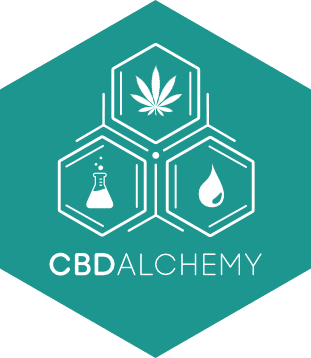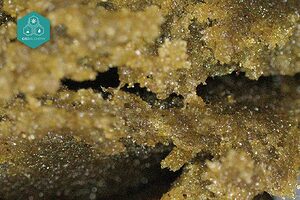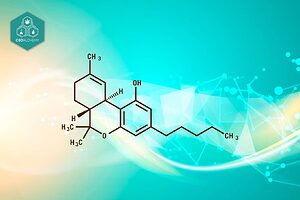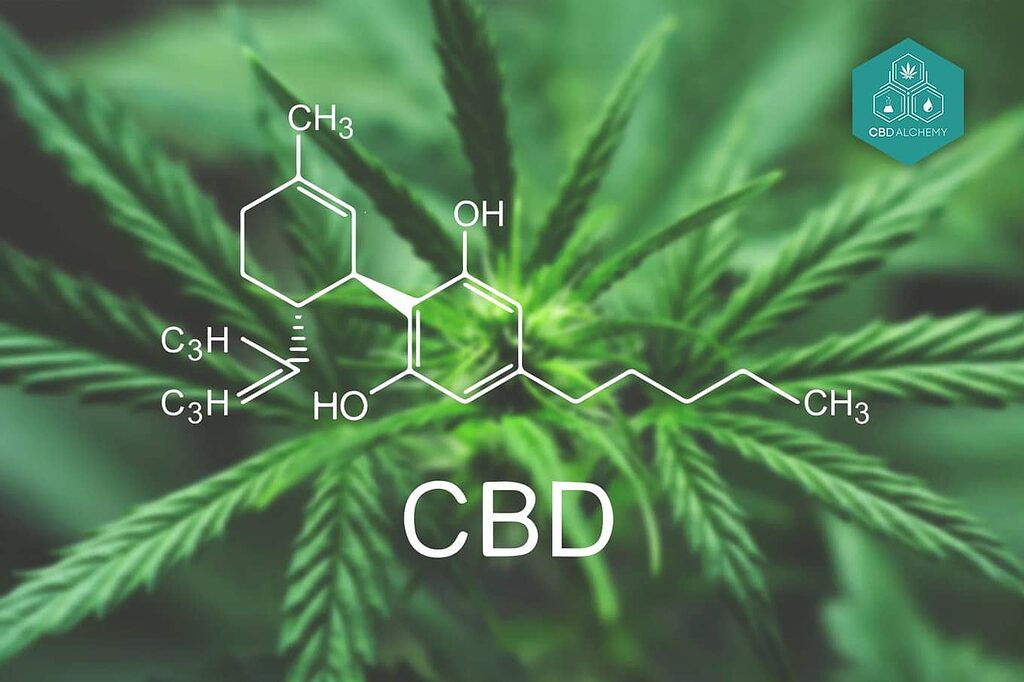
Cannabidiol, known as CBD, is a natural compound of the cannabis plant. Unlike THC, CBD does not cause psychoactive effects, allowing you to take advantage of its therapeutic benefits without experiencing the ‘high’ associated with marijuana. In this article, we will explore what CBD is and how it differs from THC, answering the question:what is CBD?
Also, you can subscribe to our free newsletter sent weekly via email.
Key Points
- CBD, unlike THC, is a compound in cannabis that has no psychoactive effects, allowing its use without altering mental abilities.
- CBD offers several therapeutic benefits, including analgesic, anti-inflammatory, anxiolytic and anti-emetic properties, being effective in pain relief and anxiety reduction.
- The legality of CBD in Spain and other European countries allows its commercialization under certain regulations, being important to ensure that products do not exceed 0.2% THC.
Definition of CBD
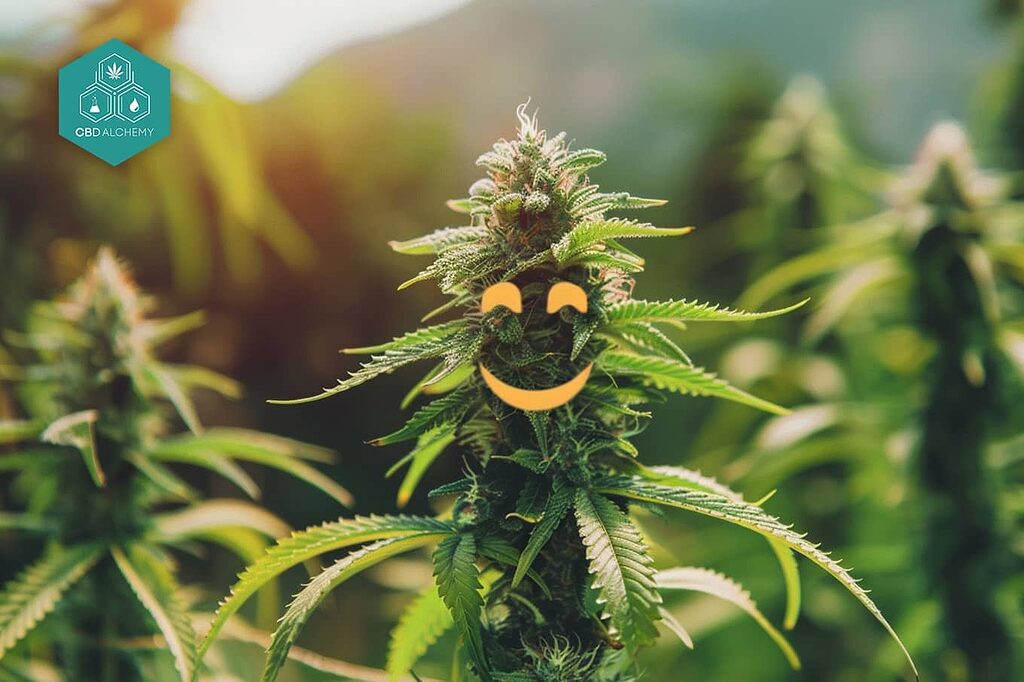
Cannabidiol (CBD) is a natural compound extracted from the cannabis sativa plant. Unlike THC, CBD has no psychoactive or psychotropic effects, which means that it does not alter brain capacities or produce the well-known “high” associated with marijuana use. This characteristic makes it particularly attractive to those seeking the therapeutic benefits of cannabis without the mind-altering side effects.
CBD contains very low concentrations of delta-9-THC, the main chemical responsible for the psychoactive effects of marijuana. This allows CBD products to be used safely and effectively in a variety of medical and wellness applications. With a clear understanding of what CBD is, we can delve into the crucial differences between this compound and THC.
Differences between CBD and THC
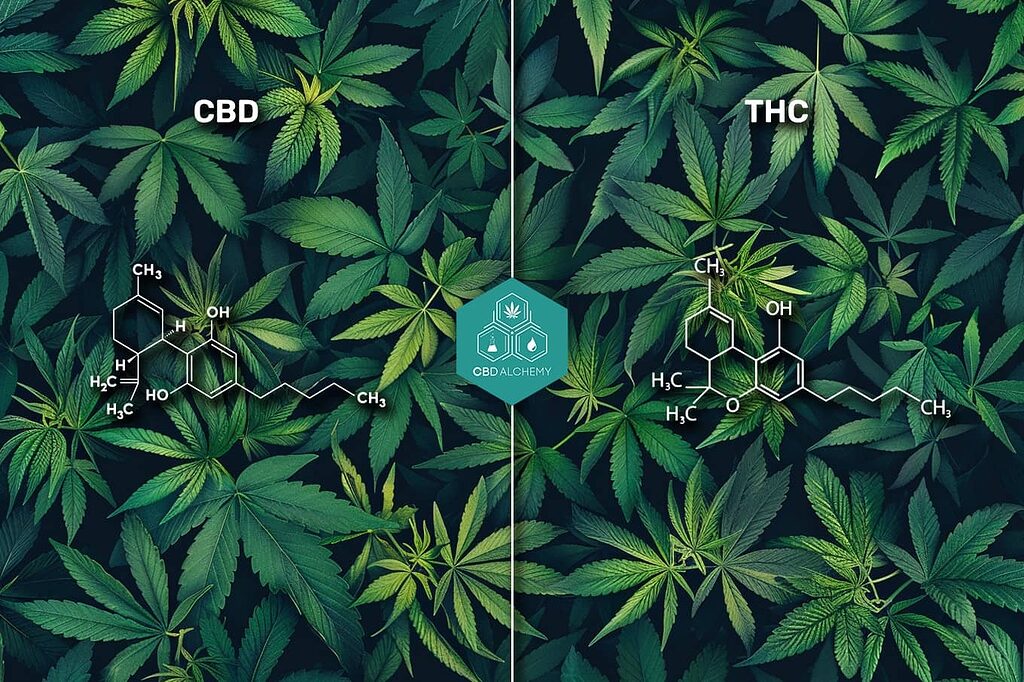
Although CBD and THC are compounds found in the cannabis plant, their effects on the body and mind are markedly different. THC is the component responsible for the psychoactive effect of cannabis, meaning it can cause a ‘high’ and alter brain capabilities. CBD, on the other hand, does not have these psychoactive effects, allowing users to maintain mental clarity while enjoying its therapeutic benefits.
Both compounds interact with the body through the endocannabinoid system, a network of receptors that regulates functions such as pain, mood and appetite. However, while THC primarily affects the brain, CBD acts more broadly in the body, offering relief without the mental disruption. This fundamental difference opens the door to a variety of therapeutic applications for CBD, which we will explore below.
Therapeutic Benefits of CBD
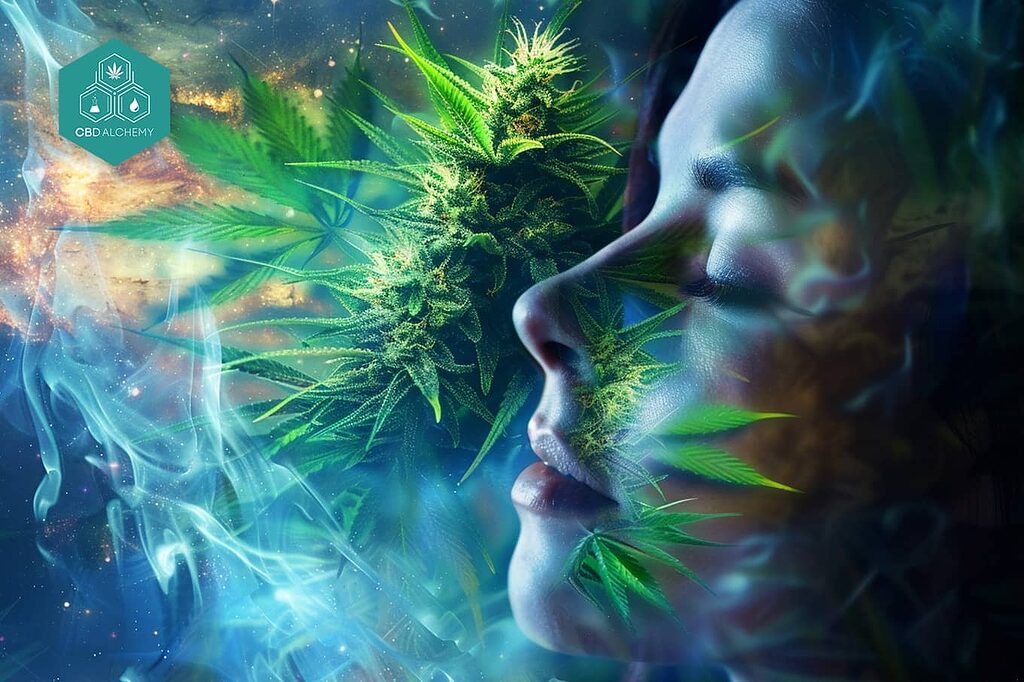
CBD is known for its analgesic properties, meaning it can relieve pain without causing psychoactive effects. For example, a study in the European Journal of Pain suggests that CBD can help reduce pain in patients with rheumatoid arthritis. CBD balms and creams are commonly used for the relief of muscle and joint pain, providing a natural option for those seeking alternatives to traditional painkillers.
In addition to its analgesic properties, CBD possesses anti-inflammatory properties that help reduce inflammation. It is also effective in reducing anxiety, with studies showing positive effects with doses of 300 to 600 mg. CBD even has antipsychotic effects, counteracting the psychoactive effects of THC and proving effective in the protection and health of the nervous system. CBD has also been shown to have anti-nausea and anti-emetic properties, useful in patients with chemotherapy-induced nausea.
With these properties, CBD has gained popularity as a therapeutic option for a wide range of medical conditions. However, how CBD is consumed can affect its efficacy and how quickly its effects are felt. Below, we will explore the various ways in which CBD can be consumed.
Ways to consume CBD

CBD comes in many forms, tailored to different needs and preferences. Among the most popular options are oils, flowers, extracts and cosmetics. These presentations allow CBD to be consumed in a variety of ways, including oral ingestion, sublingual application, topical and inhalation. Each method of consumption has its own characteristics and benefits, offering different absorption rates and effects.
Sublingual CBD consumption, for example, is one of the fastest forms of absorption, as CBD enters directly into the bloodstream through the buccal mucosa. Below, we will explore each of these forms of consumption in detail, starting with CBD oils.
CBD Oils
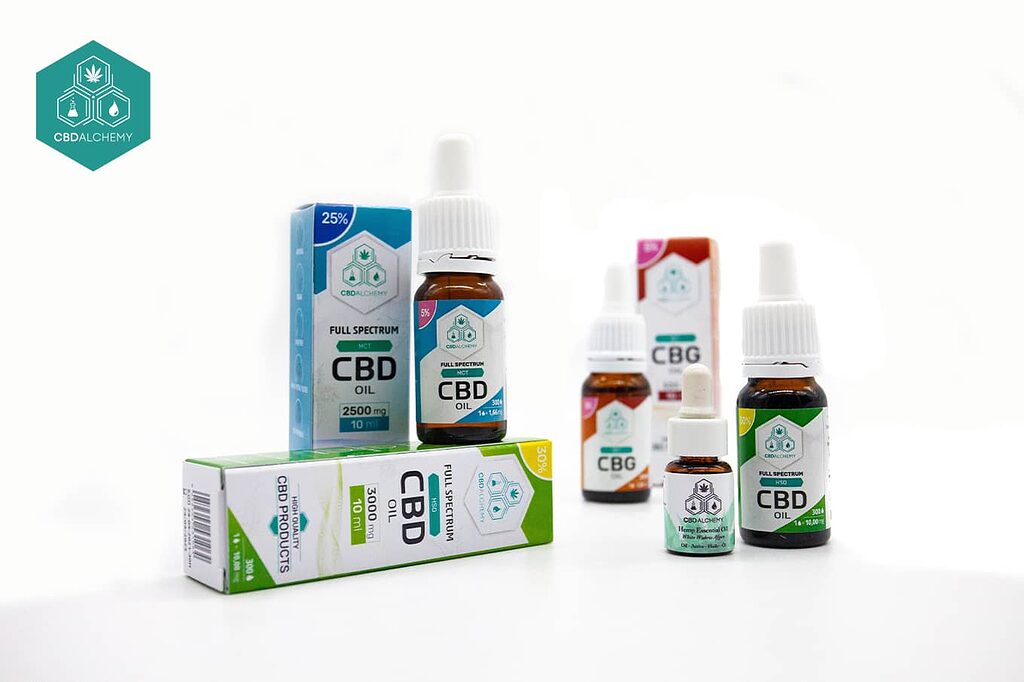
CBD oils are primarily administered under the tongue using a dropper or spray, and must be held without swallowing saliva for at least 30 seconds to a minute for optimal absorption. This method allows CBD to enter directly into the bloodstream through the sublingual mucosa, avoiding passage through the digestive tract and allowing for greater bioavailability and a faster effect.
Sublingual CBD oil is known for its analgesic and anti-inflammatory properties, making it a natural choice for chronic pain relief. In addition, CBD can help regulate mood and reduce symptoms of anxiety and depression. The oils used for sublingual consumption are typically hemp seed oil or coconut MCT oil based, providing a healthy base for CBD absorption.
This type of administration allows the effects of CBD to be felt in as little as 15 to 30 minutes, offering fast and effective relief. In addition, CBD can help regulate sleep patterns and improve sleep quality in people with insomnia. With these benefits, it’s no wonder CBD oils are one of the most popular ways to consume this compound.
CBD flowers and extracts
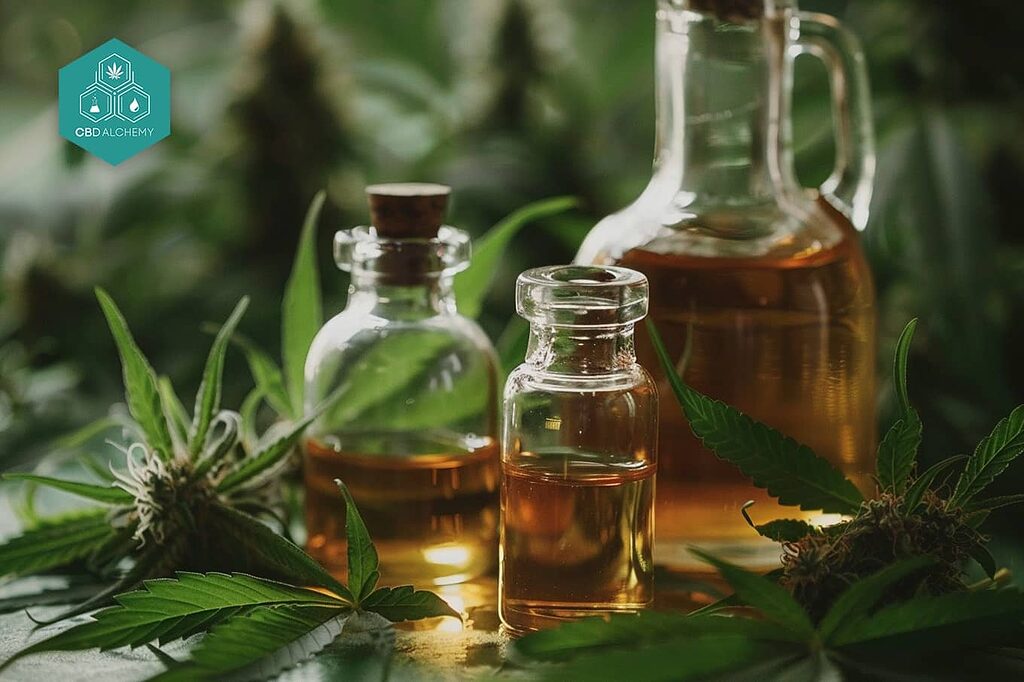
CBD flowers are a popular choice for those who prefer more traditional methods of consumption, such as smoking or vaping. These methods allow for rapid absorption of cannabinoids, offering almost immediate relief from symptoms such as anxiety and insomnia. In addition, CBD extracts provide a high concentration of cannabinoids and terpenes, making them ideal for a variety of therapeutic applications.
CBD extracts can be added to food or beverages, making them easy to consume without the need for smoking or vaping. CBD Alchemy, for example, offers a variety of high-quality flower products and extracts, using ancient techniques and modern technology to ensure excellent terpene profiles. These options allow users to customize their CBD consumption experience according to their preferences and needs.
CBD Cosmetics
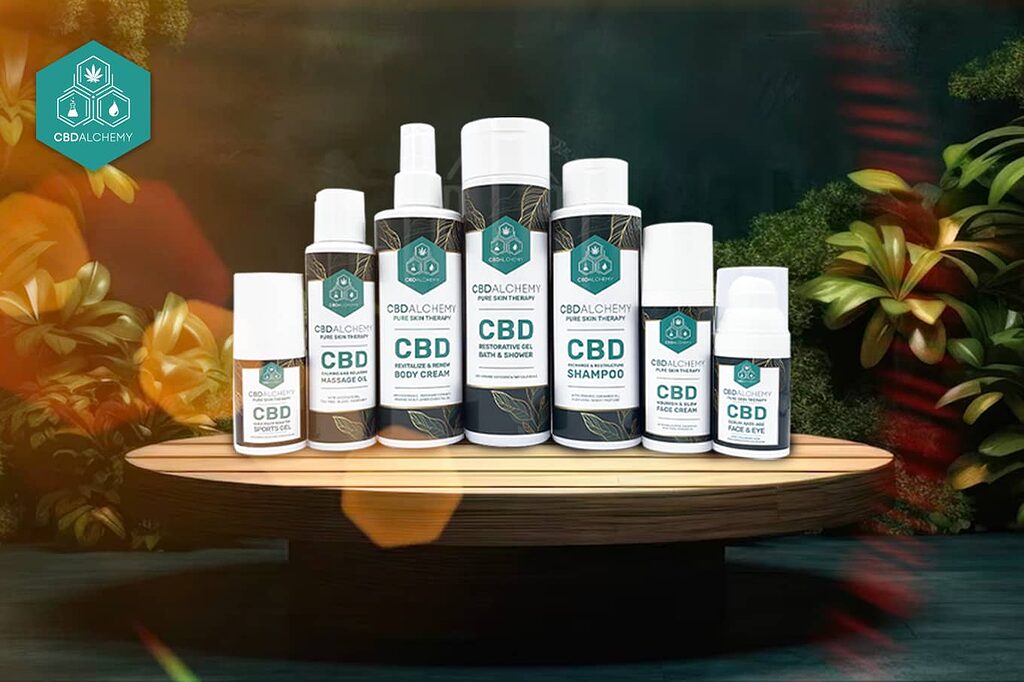
CBD cosmetics have gained popularity thanks to their numerous benefits for the skin. These products can include creams and balms that are applied topically, offering antioxidant and anti-inflammatory properties. Cannabidiol is known for its ability to hydrate, nourish and protect the skin, promoting regeneration and reducing skin aging.
Brands such as CBD Daily, Osiris and Beemine Lab have incorporated the cannabidiol compound into their products, offering a variety of skin and hair care options. Examples of these products include:
- Facial creams that nourish and brighten skin
- Shampoos that revitalize hair
- Body oils that moisturize and soothe the skin
- Lip balms that protect and repair the lips
CBD cosmetics offer a symphony of skin benefits, providing a complete and natural skin care experience.
By applying the right amount of cream or product to the desired area and massaging until fully absorbed, the benefits of CBD are maximized.
Properties of terpenes in CBD

Terpenes are aromatic compounds present in cannabis plants that not only provide the distinctive aromas, but can also enhance the effects of CBD. Terpenes are responsible for the smell of the cannabis plant and this varies depending on the proportion of terpenes. These organic hydrocarbons are classes of secondary metabolites biosynthesized by the Cannabis sativa L. plant, and produce synergy with the effects of cannabinoids, a phenomenon known as the entourage effect.
Terpenes are made up of the bonding of units of a 5-carbon hydrocarbon called isoprene. Each terpene has unique properties that may offer additional benefits when combined with CBD. Below, we will explore three of the most common terpenes present in CBD: myrcene, pinene, and limonene.
Myrcene
B-myrcene is the most abundant terpene secreted by the cannabis plant, accounting for up to half of the total volume of terpenes. This terpene is known for its sedative and hypnotic properties, making it ideal for those seeking relaxation and stress relief.
In addition, myrcene promotes the entry of cannabinoids into the brain, thus enhancing the effects of THC and other cannabinoids. This synergy produces a highly physical and hypnotic effect, typical of indica strains of cannabis. With these properties, myrcene has become a key component in the formulation of CBD products intended for relaxation and pain relief.
Pinene
Pinene is another terpene commonly found in the cannabis plant. This terpene has favorable effects on memory, including diminishing the negative effects of THC.
By improving memory and counteracting the negative effects of THC, pinene offers a perfect balance for those seeking the benefits of CBD without the unwanted side effects.
Limonene
Limonene is recognized for its properties:
- Anxiolytic
- Spicy citrus aroma
- Calming effect
- Cancer prevention and treatment
- Effective in weight loss
- Bronchitis treatment
The combination of these benefits makes limonene a valuable component in CBD products intended for general wellness. Its ability to offer natural anxiety relief and its anti-cancer properties make it an essential terpene in the formulation of CBD products.
Scientific studies on CBD

Several scientific studies support the therapeutic benefits of CBD in the treatment of various medical conditions. These studies range from cancer-related pain relief to improving sleep quality in chronic pain patients.
Below, we will explore some of the most significant findings in CBD research.
1. Cancer-related pain relief
Medical cannabis, which includes products with THC:CBD balance, has been shown to be particularly effective in relieving oncologic pain. This is especially relevant for patients seeking natural alternatives to traditional painkillers, which often come with a long list of side effects.
These products not only relieve pain safely, but can also improve the quality of life for patients facing this difficult disease. The use of CBD for the management of cancer-related pain is a promising area of medicine, supported by a growing body of scientific data.
2. Effects on glioblastoma
Inhaled CBD has been shown to inhibit the progression of glioblastoma, an aggressive type of brain cancer. This compound alters the dynamics of the tumor microenvironment, suggesting its potential as an adjunct in the treatment of this disease.
These findings are encouraging and underscore the need for further research to fully understand the mechanisms through which CBD may be beneficial in the treatment of glioblastoma.
3. Temozolomide (TMZ) sensitization
CBD has also shown potential to enhance the antitumor activity of temozolomide (TMZ), a drug used in the treatment of glioblastoma. By inhibiting RAD51 expression, CBD sensitizes the tumor to TMZ, thereby improving the efficacy of the treatment.
This advance could represent a significant improvement in therapeutic strategies against glioblastoma.
4. Improved sleep quality
CBD has been shown to be effective in improving sleep quality, especially in patients with chronic pain. Although the benefits may be small, any improvement in sleep quality can have a significant impact on the overall health and well-being of patients.
The use of CBD as a sleep aid is an attractive option for those seeking natural alternatives to traditional insomnia medications. CBD’s ability to regulate sleep patterns and its potential to work synergistically with melatonin are areas of ongoing and promising research.
Current status of CBD research
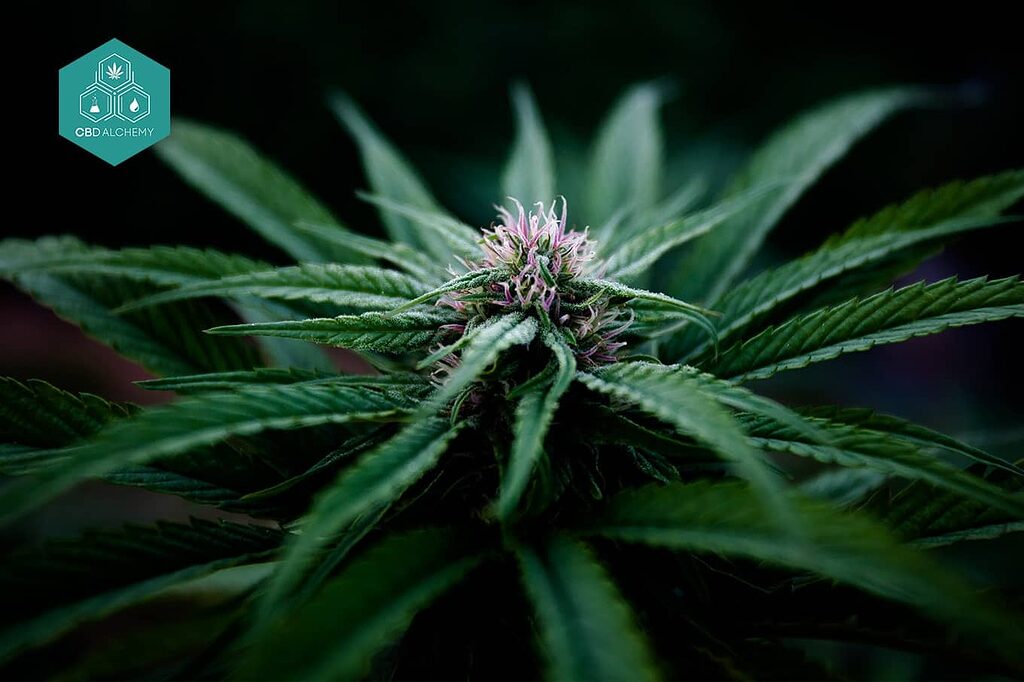
In June 2022, the Health and Consumer Commission of the Spanish Congress approved the legalization of cannabis for therapeutic purposes for various conditions, including:
- oncological and chronic pain
- endometriosis
- multiple sclerosis
- epilepsy
- nausea and vomiting induced by chemotherapy
However, the future law that will regulate the medicinal use of cannabis in Spain remains stalled, and the report of the Spanish Medicines Agency (AEMPS) with recommendations has not yet been published.
Meanwhile, many patients in Spain resort to medical cannabis without medical advice, relying on information from the internet and facing a lack of health and product quality guarantees. This situation underscores the need for clear and effective regulation to ensure safe and controlled access to CBD and other medical cannabis products.
Side effects of CBD
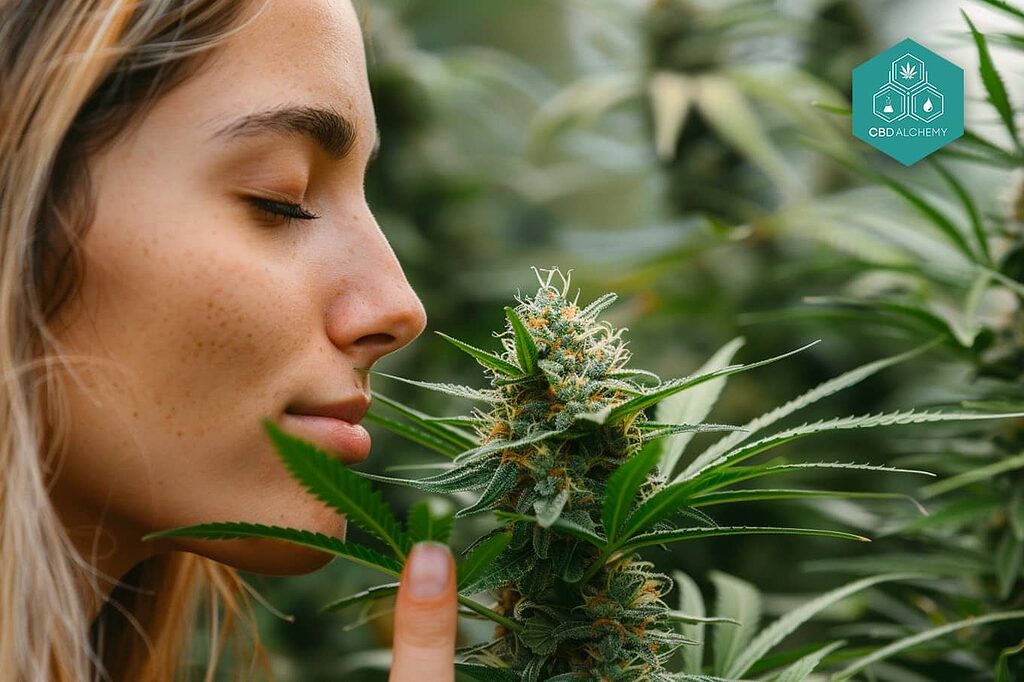
Although CBD is known for its therapeutic effects, it can also have side effects. Some of the most common side effects that can be experienced are:
- Dry mouth
- Low blood pressure
- Lightheadedness
- Drowsiness
These symptoms are important to be aware of when taking this medication. These side effects are usually mild and temporary, but are important to be aware of, especially for those who are new to using CBD.
Other side effects that may occur include:
- Diarrhea
- Decreased appetite
- Fatigue
- Drowsiness
Like any substance, CBD is not suitable for everyone, and it is crucial to consult a healthcare professional before beginning any new regimen. Despite these potential side effects, many users find that the therapeutic benefits of CBD far outweigh any drawbacks.
Legality of CBD
CBD is recognized as legal in a wide variety of countries, always subject to industrial hemp regulations and laws. In Europe, the legality of CBD received a significant endorsement through a decision of the Court of Justice of the European Union, which allows the marketing of CBD products in any member country. However, the permitted percentage of THC in CBD products varies between 0.2% and 0.3%, depending on the country.
In Spain, the commercialization of CBD products is legal as long as they do not exceed 0.2% THC. Legal forms of CBD consumption include topical and inhalation via vaping, although smoking CBD flowers is not legal. This regulation allows consumers to access CBD products in a safe and controlled manner.
Summary
CBD is a naturally occurring compound with a broad spectrum of therapeutic benefits, from pain and anxiety relief to improved sleep quality. Its lack of psychoactive effects makes it accessible to a wide variety of users seeking to improve their well-being without the side effects of THC. Through various forms of consumption, such as oils, flowers, extracts and cosmetics, CBD offers options for every preference and need.
Despite some side effects and the need for clearer regulation, the future of CBD in medicine and wellness looks promising. With ongoing research and studies supporting its benefits, CBD is well positioned to become a key tool in the quest for mind-body balance. Consider exploring the world of CBD and discover how it can transform your life.
Frequently Asked Questions
What is CBD?
CBD, known as cannabidiol, is a naturally occurring compound in the cannabis sativa plant, recognized for its therapeutic effects without producing psychoactive effects.
What is the difference between CBD and THC?
The main difference between CBD and THC is that THC is psychoactive and can cause a “high”, while CBD has no psychoactive effects. Therefore, CBD does not alter brain capabilities.
What are the side effects of CBD?
Side effects of CBD can include dry mouth, low blood pressure, grogginess, drowsiness, diarrhea, decreased appetite, and fatigue. It is important to be aware of these possible effects before consuming CBD.
Is CBD legal?
Yes, CBD is legal in many countries, including Spain, as long as it complies with established regulations on THC content, which must not exceed 0.2%.
What is the most common way to consume CBD?
The most common way to consume CBD is in the form of oil, administered as drops under the tongue for rapid absorption and therapeutic effect. Many people find this option effective for daily use.
